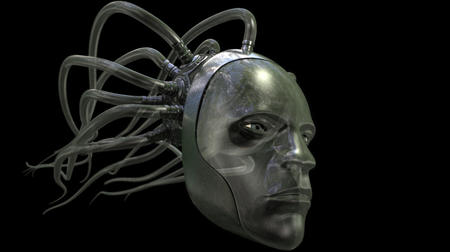| Complicated and Complex | 2008-06-29 16:47 4 comments |
 by Flemming Funch by Flemming FunchIn everyday usage, we often use "complicated" and "complex" interchangably. Which makes it a little bit hard to discuss complexity. I mean, the "good" kind of complexity that you find in nature, for example. We could say that we need the scientific definition of complexity, but science has unfortunately come up with at least 32 different definitions, that don't agree with each other. But if we cut through the confusion a bit, something like this would be workable: Complicated is when something contains many intricately combined parts. It is something that is hard to figure out. Even if you do figure it out, there's no guarantee that things are put together in a sensible way. Complex is when something acts as a system, and it is exhibiting systemic properties that aren't obvious. It is something more and different than simply a sum of its parts. There might or might not be many parts, but the result is something not very transparent, which takes on a life of its own in some fashion. An Airbus A380 is complicated. A jellyfish is complex. The Paris Metro network is complicated. How people use it is complex. Your skeleton is complicated. You are complex. A building is complicated. A city is complex. One scientific view, which tries to cut through the multitude of definitions of complexity is here. It says basically that complexity is any real world system who's properties can't be explained by being reduced to any one formalism. Formalisms would be stuff like laws of mechanics (vectors, forces), or pretty much any "Newtonian" kinds of laws. Life is complex. Life forms, eco-systems, the behavior of indivual animals or humans, or groups of them, all of that is stuff that is beyond old-fashioned reductionist science. You can dissect them and catalogue what they're made of, but it tells you little about what makes them do what they do. Consciousness is complex. The tendency of nature to self-organize is complex. The universe is complex. Many complicated things can be understood by isolating them from everything else, by taking them apart, understanding all the parts, understanding how they're put together, and we might then know something useful that we can apply the same way again and again. We can invent complicated things the same way, by putting together parts we understand, based on principles we understand. That all works quite well for mechanical stuff, and has brought us bridges and automobiles and phone systems and western medicine. Some people are so happy with all of these that they intuitively have adopted the belief system that this really is all that exists: the stuff we can take apart and put back together again. But the much bigger part of existence is all the stuff that's complex. Life itself is something mysterious and very complex. The fact that we exist at all is quite a mindblower. The fact that the universe exists and that it appears to be somehow ordered and livable, that's quite wild. Consciousness is something strange and hard to fathom. All of that is complex. Stuff that is complex tends to defeat attempts of isolating it and cutting it to pieces. It seems to often relate to other stuff that is outside the part you've chosen to analyze. It is like you can't address complexity without being open to dealing with the whole universe. All of that makes complexity fascinating to look into, but it requires different models. Where you can reduce complicated stuff into pieces that you can study and understand separately, complexity seems to require the opposite. You need to chunk it up and find what principles appear to be at work. Inductive reasoning, rather than deductive reasoning. |